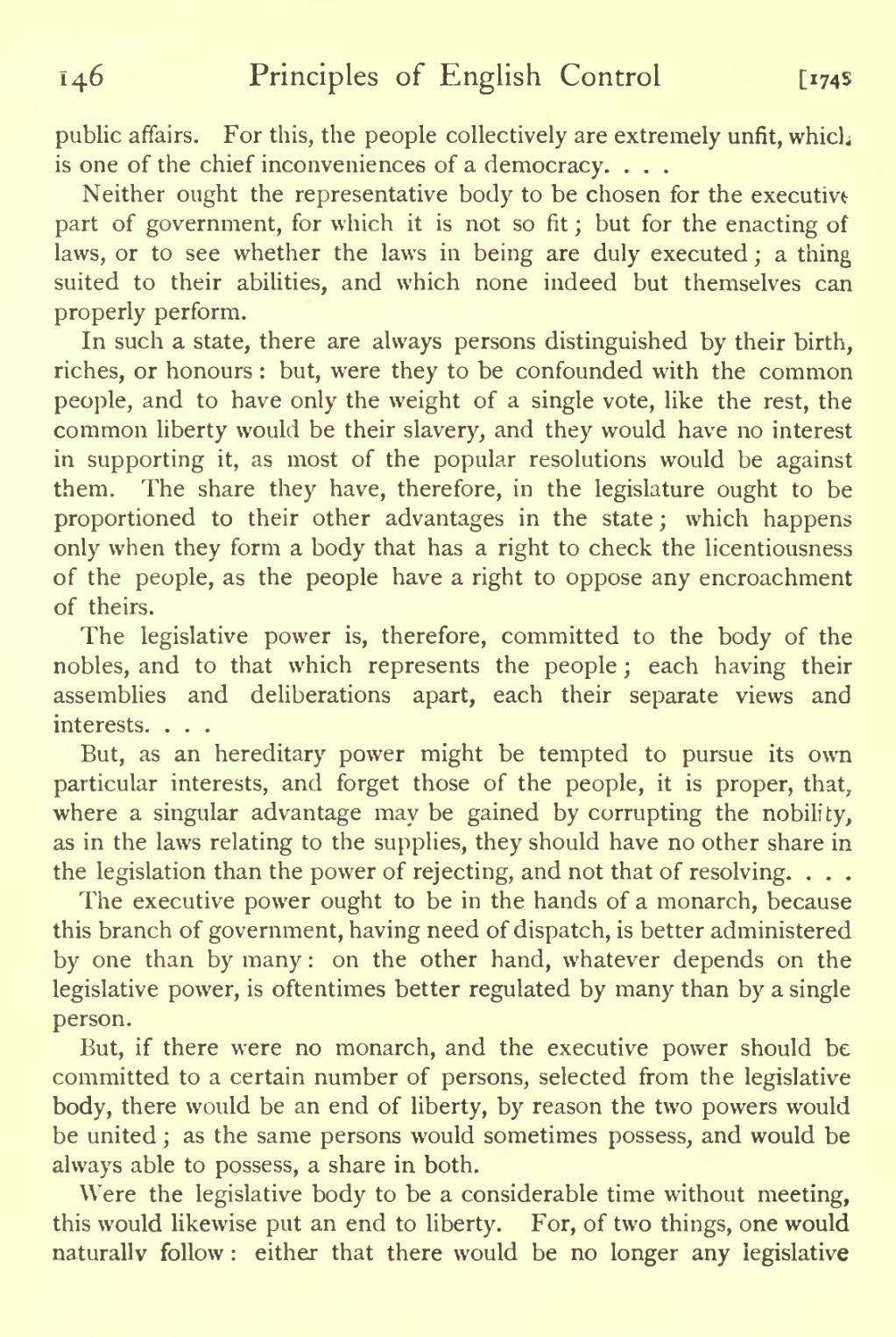public affairs. For this, the people collectively are extremely unfit, which is one of the chief inconveniences of a democracy. . . .
Neither ought the representative body to be chosen for the executive part of government, for which it is not so fit ; but for the enacting of laws, or to see whether the laws in being are duly executed ; a thing suited to their abilities, and which none indeed but themselves can properly perform.
In such a state, there are always persons distinguished by their birth, riches, or honours : but, were they to be confounded with the common people, and to have only the weight of a single vote, like the rest, the common liberty would be their slavery, and they would have no interest in supporting it, as most of the popular resolutions would be against them. The share they have, therefore, in the legislature ought to be proportioned to their other advantages in the state ; which happens only when they form a body that has a right to check the licentiousness of the people, as the people have a right to oppose any encroachment of theirs.
The legislative power is, therefore, committed to the body of the nobles, and to that which represents the people ; each having their assemblies and deliberations apart, each their separate views and interests. . . .
But, as an hereditary power might be tempted to pursue its own particular interests, and forget those of the people, it is proper, that, where a singular advantage may be gained by corrupting the nobility, as in the laws relating to the supplies, they should have no other share in the legislation than the power of rejecting, and not that of resolving. . . .
The executive power ought to be in the hands of a monarch, because this branch of government, having need of dispatch, is better administered by one than by many : on the other hand, whatever depends on the legislative power, is oftentimes better regulated by many than by a single person.
But, if there were no monarch, and the executive power should be committed to a certain number of persons, selected from the legislative body, there would be an end of liberty, by reason the two powers would be united ; as the same persons would sometimes possess, and would be always able to possess, a share in both.
Were the legislative body to be a considerable time without meeting, this would likewise put an end to liberty. For, of two things, one would naturally follow : either that there would be no longer any legislative
